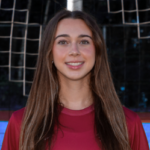SoccerWire.com Q&A: Shakhtar Donetsk U-21 coach Miguel Cardoso on bridging academy, first team gap
PHILADELPHIA — Miguel Cardoso was one of the more compelling clinicians at the 2014 National Soccer Coaches Association of America Convention. He presented sessions on creating defensive patterns and training transition moments, patrolling the field and speaking with charisma reminiscent of Jose Mourinho.
Like Mourinho, Cardoso is Portuguese and worked at FC Porto. Cardoso also worked at Deportivo La Coruña, Sporting Lisbon, SC Braga, and AA Coimbra. In June 2013, he moved to Ukraine to take over as Shakhtar Donetsk’s under-21/reserve head coach and technical director of the academy.
Shakhtar is one of Ukraine’s most successful clubs, finishing in the top two of the Premier League for each of the past 17 seasons. They have won eight titles in that time, including the last four, winning the 2009 UEFA Cup.
Cardoso sat down for a one-on-one interview with SoccerWire.com on Jan. 18.
SoccerWire.com: I have to start with a question of personal interest on my end: Shakhtar manager Mircea Lucescu is a god in Romania, and I’m half-Romanian. What’s it like working with him?
Miguel Cardoso: “He’s a god in Ukraine, also. He’s a god in Turkey. So he’s a god some places around the world. … I like very much to work with Mr. Lucescu. It has been a fabulous journey, these last eight months for me. Since the first day I arrived at Shakhtar, I’ve been working with him. The first day I went in Ukraine, they took me to some restaurant where Mr. [Lucescu] was having lunch, [for] the first meeting — me, him, and the general director, CEO, from Shakhtar, Sergei Palkin. So we had the meeting, three of us during lunch, and it was my first time meeting him, and it was very important. We had the opportunity to talk for almost two hours, and he could recognize that after the first hour some positive sign from me to Palkin. It was quite important and key for me getting into Shakhtar, and it was important to have his approval because with his approval, I could work the way I wanted, according to his ideas also. It has been a very good experience. Of course, I have to manage to understand his philosophy and to try to make the connection between the academy and first team, through the under-21 team for which I am the coach. Our relation is not daily, but basically, regularly, we have meetings. I go to his training sessions and speak with him, which is important. Some of his players come and play for [the] reserves. Usually, also some of the reserve players work with the first team.
“This is the best relation we could have between the academy, reserve team — under-21 team — and the first team, so that we can in the future understand what is important to produce players for the first team — which are the demands, and indeed, be able to accomplish them and to produce really good players for the first team of Shakhtar.”
SW: In the United States, there’s a huge disconnect between the oldest youth ages and the professional level. The jump from the college level to the professional league is big, and many players get lost. How do you try to bridge that gap, and what’s the role of the under-21 team in that?
MC: “The problem that you’re speaking about is a really big problem — it’s not only an American or USA problem; it’s a problem around the world. Of course, there are several ways to manage the problem and work with dealing with it. Basically, to solve it is the most important thing. In Ukraine, we have this championship of under-21. I think it’s quite an interesting championship. I have worked already for the second team of Porto, in Portugal, for four years, but then, the team was a little bit different. Here, we have basically a championship where you have only under-21 players. You can play with four players from the first team over age 21, but basically, they play all together. It’s quite an important competition in Ukraine, so the level of the teams together with these four players that come from the first team is quite interesting. The competition is also very hard, so basically, I think this is quite a way to help in bringing up players.
Brazil has lots of technical players they grow like the flowers, and why? Because they have lots of them playing on the streets.
“For me, the most important thing is the quality of the process during this age. … I think we have maybe a problem here in the USA. Yesterday, I was talking to someone — you don’t have street football. You have basketball on the streets. Basically, in Europe — now, with the development of the countries and of the cities — we have less street football, but still, we have lots of street football. For instance, you see Brazil has lots of technical players they grow like the flowers, and why? Because they have lots of them playing on the streets. This is very important in the youngest ages, where you get the technical skills that one day will be very important to your years as a professional footballer. That, of course, is not only a question of developing the players in terms of the physical and fitness side of them, but also giving them the tactical resources that they really need at high-level football. In the relation between these factors, we can bring up a player.
“There’s indeed another question: the guys that are more focused are the ones that really achieve the standard. I think it’s quite important for us to understand how to get this focus in the players, how to really make them understand how they should work, how they should dedicate themselves to the game. The experiences I’ve had show me that these are the guys that reach the top. I worked, for instance, in Portugal with Bruno Alves, who is now a central defender on the national team, Ricardo Costa, Hélder Postiga, and these players were the ones that were more focused on the work. They work very hard. Maybe they weren’t even the most skillful at that time, but they were the ones that reached the top. It’s quite important to manage these things all together.”
SW: The U.S. is such a huge country that we have a wide range of coaches and coaching styles here. At your club, how do you get every coach to buy into the same system and philosophy?
MC: “It’s not easy. What you are speaking about is also not simple. Coaches’ education is basically one important thing also related to the growing up of our players and really allowing them to achieve the highest standard and the highest level and to achieve really good performance in the future. The question for instance in Portugal, the coaches’ education is more easy to control because the country is quite small, and process is now very regulated with UEFA. We have the degrees as coaches, and things are more regulated. I think here in USA, you have three levels or four levels of coaches, you have college education, you have university teams, and you have MLS. So basically, you have different degrees as coaches. It’s important for you also to understand and provide one, single, hard education system. I think you should really worry about finding the best way, and you should work also with FIFA so that you can find the best way. Of course, NSCAA has made a big effort and is helping a lot in this, and it’s important to congratulate the association on the effort they are making in growing the level of the coaches.
I have the highest degree as a coach, and of course those degrees are important — but I think those weren’t the most important tools in my, let’s say, graduation as a coach.
“But I’m quite sure the coaches grow by their own interest. It’s my experience the coach will grow as much as an investment is made by them, not only on making their degrees as coach. I made the UEFA Pro; I have the highest degree as a coach, and of course those degrees are important — but I think those weren’t the most important tools in my, let’s say, graduation as a coach. Maybe my own reflections, my own effort to learn, together with lots of informal moments of learning that I have — I’m always trying to communicate with people. That’s why I offered myself to open the session and go in the room again after my training session [at the convention], because I want to communicate with people. I want to speak about what I do because when I speak about what I do, I also analyze what I do. I reflect. I write. Basically, it’s important to make it like this.
“In Shakhtar, of course, we are working also with education of our coaches. Basically, also almost all of our coaches are ex-players, and as ex-players, they have one view of the game. They need also to get some upgrades in other parts, and we are working with them hard. We are bringing up some knowledge to the club — that’s also the mission of the club: to bring good, international football to the club — and we are bringing some ideas, we are working with them, we are picking the best they have and adding some things we consider to be important so that in the future we can indeed develop our players in the best way.”












